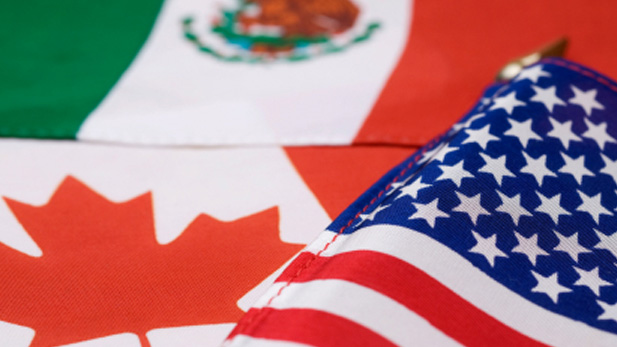
MEXICO CITY — The executive branches of Canada, Mexico and the United States reached a new trade agreement earlier this week. But to put it into action, the congresses from the three countries still have to have to pass it — and in the U.S., the Democratic Party will play an important role.
The approval of the new trilateral trade agreement, known as the U.S.-Mexico-Canada Agreement (USMCA), will depend on this year’s elections in the United States, particularly on the Democrats’ possible gains in the new Congress.
“Trade agreements are interesting in that, once they are negotiated, the executive branches — presidents and prime ministers — get together and sign these trade agreements, and then they go to congress, which is backwards of the way it usually works with legislation,” explained Erik Lee, the director of the North American Research Partnership, a think tank based in Arizona.
He says Democrats are not typically keen on negotiating trade deals and might want to confront the White House.
“Historically, this party has not been eager to negotiating trade agreements; the Obama administration being an anomaly,” said Lee.
The analyst said President Trump’s administration included the labor content rule, increasing wages on the automotive industry, to try to get more Democrats on board.
“That is an olive branch that’s been extended by the Trump administration to a possible majority of Democrats in the House — or a sweetener, if you will,” Lee said.
If Congress rejects the new deal, the current one will remain in effect. But Lee says that the Trump administration could push back by pulling the U.S. out of the North American Free Trade Agreement (NAFTA).
“Its future is uncertain at best, with this year’s election results,” said Lee. “But we still have free trade on the continent and that is of geostrategic importance for the United States, Canada and Mexico.”


By submitting your comments, you hereby give AZPM the right to post your comments and potentially use them in any other form of media operated by this institution.